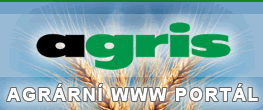The Week in Europe 10-13/04/01
23.04.2001 | Euroskop

EU news in brief
Animal transport: Commission adopts proposal to improve conditions for the long distance transportation of animals
The European Commission has adopted a proposal setting out new rules for the long distance transport of horses, cattle, goats, sheep and pigs. The proposal introduces science-based standards for ventilation, temperature and humidity control in lorries carrying livestock on journeys longer than eight hours. Lorries must also be equipped with a monitoring and warning system recording humidity and temperature. The new rules are based on scientific advice and on a Commission report of last year identifying health and welfare problems during long distance transport. The new rules apply only to transportation of animals within the territory of the European Union. The full text of the proposal is available at http://europa.eu.int/comm/food/fs/aw/aw_transport_init_en.html The report of the Scientific Committee on Animal Health and Animal Welfare concerning the microclimate inside animal transport road vehicles is available at http://europa.eu.int/comm/food/fs/sc/scah/out35_en.html
Background text: IP/01/527
Urban wastewater treatment: Commission acts against Spain, France, Germany and United Kingdom
The European Commission has decided to refer Spain to the European Court of Justice and to send Reasoned Opinions (second written warnings) to France, Germany and the United Kingdom for non-respect of the European Unions Urban Waste-water Treatment Directive. Spain, France and the United Kingdom have failed to identify enough sensitive areas, i.e. water areas that are eutrophic or otherwise seriously polluted by wastewater. The Directive sets December 1998 as the deadline for strict treatment of wastewater discharges that affect such water areas. The decision against Germany is in response to inadequate legislation, in particular in Saxony-Anhalt, which has set January 2004 (instead of December 1998) as the deadline for meeting the tighter standards applicable to sensitive areas. The Commission has been reviewing how Member States are implementing this key Directive, and the decisions taken follow on from the recent “Name, Fame and Shame" forum on urban waste water treatment that took place on 19 March 2001 (see IP/01/409).
Background text: IP/01/546
Commission acts against 9 Member States on waste oils
The European Commission has decided to send Letters of Formal Notice (first warning letters) to Austria, Ireland, France, Sweden, Denmark, Belgium, the United Kingdom, the Netherlands and Finland for failing to ensure that waste oils are regenerated (recycled) rather than disposed of. The Waste Oil Directive says that Member States must give priority to the regeneration of waste oils over their disposal. The Letters of Formal Notice sent to Austria, Ireland, Sweden and the Netherlands also cover other failures to correctly transpose and apply the Directive. Commenting on the decision, Environment Commissioner Margot Wallström said: “The priority for the regeneration of waste oils given by this Directive is a key step in ensuring that we use our resources sustainably. Member States signed up to this 14 years ago. It is high time they respected their own pledges. I have said many times that I want to place an emphasis on ensuring that existing environmental legislation is enforced properly rather than on creating new environmental legislation. This is a prime example of what I mean.”
Background text: IP/01/547
U.S. Government and European Commission reach agreement to resolve long-standing banana dispute
The U.S. Government and the European Commission has today, 11th April, reached an agreement to resolve their long-standing dispute over bananas. The new regime will provide a transition to a tariff-only system by 2006. During the transition, bananas will be imported into the European Union through import licenses distributed on the basis of past trade. In the past, two European Union banana regimes were challenged successfully in the World Trade Organization, prompting U.S. retaliation against EU products. From July 1, 2001, the United States will suspend the sanctions imposed against EU imports since 1999. Welcoming the agreement, European Commissioner for Trade Pascal Lamy, European Commissioner for Agriculture Franz Fischler, U.S. Trade Representative Robert B. Zoellick, and U.S. Secretary of Commerce Don Evans stated:
"Today's step marks a significant breakthrough. It demonstrates the commitment of the Bush Administration and the European Commission to work together closely and effectively on trade issues. The banana disputes of the past nine years have been disruptive for all the parties involved - traders, Latin American, African and Caribbean producers, and consumers. We are confident that today's agreement will end the past friction and move us toward a better basis for the banana trade."
Background text: IP/01/562
Informační centrum Evropské unie při Delegaci Evropské komise v České republice
European Union Information Centre of the Delegation of the European Commission to the Czech Republic
Rytířská 31, 110 00 Praha 1, Česká republika
Tel.: (+420 2) 216 10 142 Fax: (+420 2) 216 10 144
Další články v kategorii
- Udělejme z krmení zvěře vánoční zvyk, který opravdu pomůže (23.12.2025)
- Vláda souhlasí se záměrem obnovit daňové zvýhodnění vína, zákon připraví vlastní (23.12.2025)
- Čína zavádí vysoká cla na mléčné výrobky z EU, podle Bruselu neoprávněně (23.12.2025)
- Proč jedle neopadá a smrk je historicky králem českých Vánoc? (23.12.2025)
- Mýty italské kuchyně. Historik bourá legendy o ikonických pokrmech, čelí výhrůžkám (23.12.2025)
- Pavel Vacek: Kapr je jednička, sváteční polévky střídáme (23.12.2025)
- Potravinářská inspekce zjistila v tržní síti masné konzervy z dovozu falšované sníženým obsahem masa a s nedeklarovaným alergenem (23.12.2025)
- Babiš vloží Agrofert do fondu RSVP Trust (23.12.2025)
- Tento legendární stroj měnil venkov: Příběh nejrozšířenějšího traktoru Evropy (23.12.2025)
- Souhrn událostí uplynulého dne 22. 12. 2025 (23.12.2025)

 Tweet
Tweet





